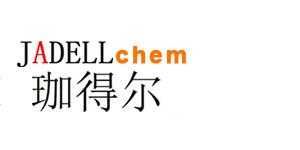Recombinant Mouse DCIP-1/CXCL3 (CHO-expressed) 是在 CHO 中产生的,作为中性粒细胞的化学诱导剂,可参与炎症反应。
Synonyms
rMuDCIP-1/CXCL3; C-X-C motif chemokine 3; Dendritic cell inflammatory protein 1
Species
MouseSource
CHO Accession
Q6W5C0 Gene ID
330122 Molecular Weight
Approximately 8 kDa AA Sequence
AVVASELRCQ CLNTLPRVDF ETIQSLTVTP PGPHCTQTEV IATLKDGQEV CLNPQGPRLQ IIIKKILKSG KSS Biological Activity
The EC50 is <100 ng/mL as measured on Ca2+ mobilization assay in CHO-K1/Gα15/mCXCR2 cells (human Gα15 and mCXCR2 stably expressed in CHO-K1 cells). Appearance
Lyophilized powder. Formulation
Lyophilized after extensive dialysis against PBS. Endotoxin Level
<0.2 EU/μg, determined by LAL method. Reconstitution
Reconstitute the lyophilized recombinant Mouse DCIP-1/CXCL3 (CHO-expressed) (rMuDCIP-1/CXCL3) to 100 µg/mL using ddH2O or diluted with PBS. Storage & Stability
Lyophilized recombinant Mouse DCIP-1/CXCL3 (CHO-expressed) (rMuDCIP-1/CXCL3) is stored at -20°C. After reconstitution, it is stable at 4°C for 1 week or -20°C for longer. It is recommended to freeze aliquots at -20°C or -80°C for extended storage. Shipping
Room temperature in continental US; may vary elsewhere. Background
Chemokine (C-X-C motif) ligand 3 (CXCL3) is a small cytokine belonging to the CXC chemokine family. CXCL3 controls migration and adhesion of monocytes and mediates its effects on its target cell by interacting with a cell surface chemokine receptor[1]. It has been shown that CXCL3 regulates cell autonomously the migration of the precursors of cerebellar granule neurons toward the internal layers of cerebellum, during the morphogenesis of cerebellum[2]. |



